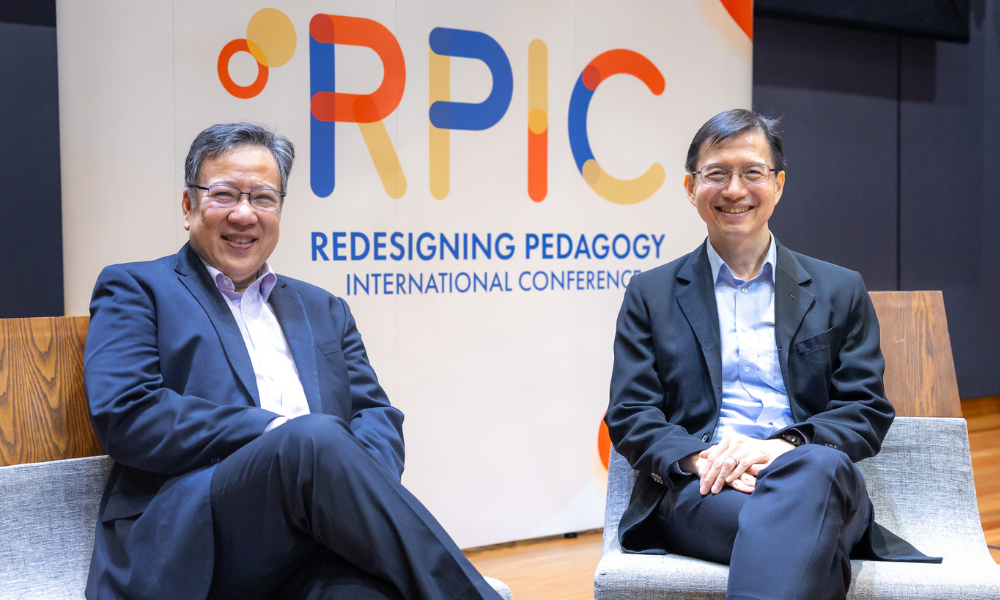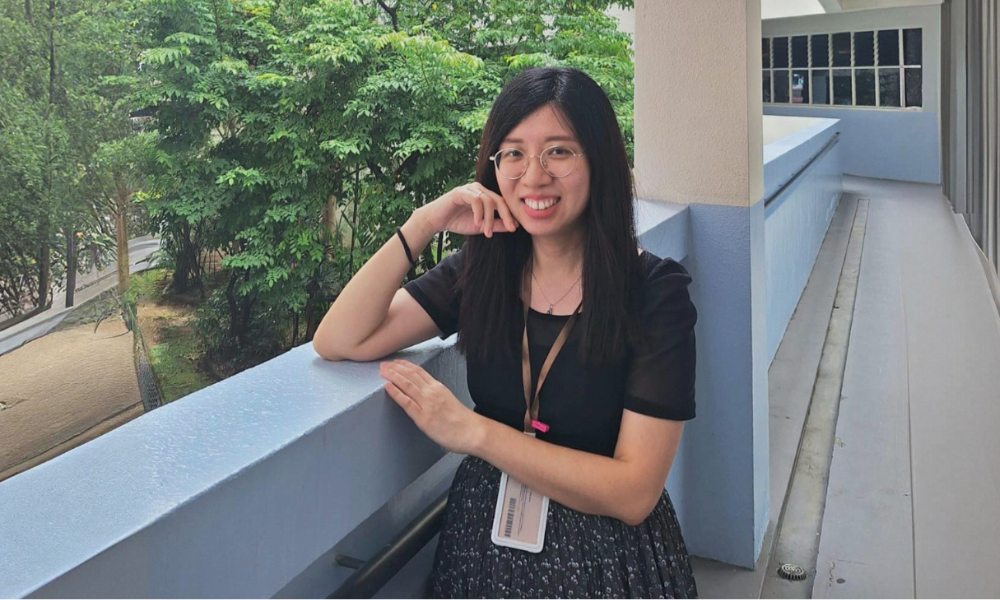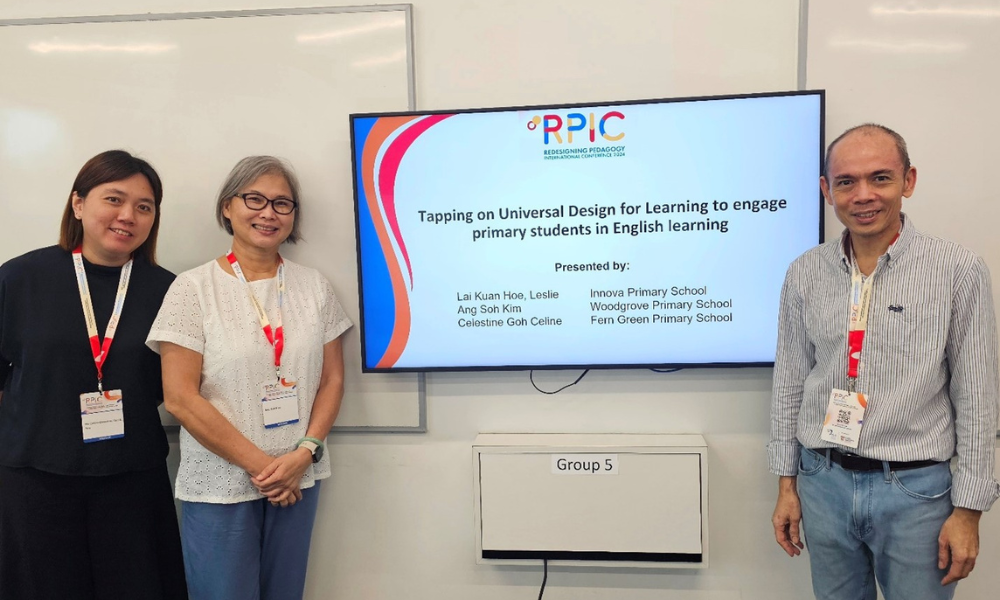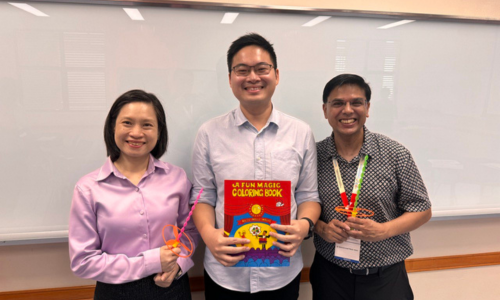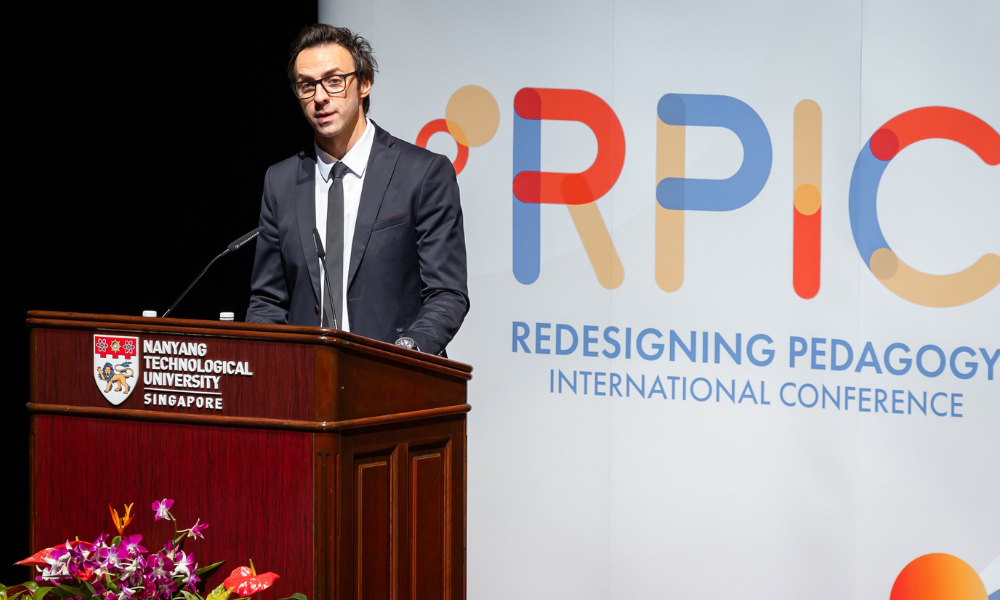A School’s Journey in Bringing AI to the Classroom
The emergence of Artificial Intelligence (AI) and its gradual integration into the classroom has reshaped the traditional classroom experience. Rosyth School, one of the schools known for its innovative approach in Singapore’s education sector, has implemented the AI-enabled Adaptive Learning System (ALS) in its classrooms. Two teachers from the school, Mr Victor Chew and Mr Edmond Lee, provide insights on the use of the ALS as well as other AI tools in the school.

From left to right: Mr Victor Chew and Mr Edmond Lee
Fostering Personalized Learning
The implementation of AI-enabled Adaptive Learning System (ALS) at Rosyth School has seen students being able to adjust the content and learning pace based on their own needs and performance. A key characteristic of the ALS is its ability to provide personalized learning experiences to students.
“When students enter the ALS, they have the flexibility to choose their preferred amount of learning time as well as the number of concepts that they want to master within that timeframe,” Mr Victor Chew, Head of EdTech Department at Rosyth School, shares. “Upon selection of the topic that they want to work on, the ALS recommends differentiated learning pathways for the
student to choose.”
Mr Edmond Lee, Senior Teacher, adds that students are usually recommended the “Guided Learning” mode to build their mastery of the concepts. Those who deem themselves more ready can opt for “Challenge” mode to evaluate their learning.
“Such decision-making on the pace and intensity of learning helps students to foster a sense of ownership and develop self-directed learning,” he remarks.
As students engage with the ALS, the system learns from their responses to the various assessment questions embedded in the learning pathway. With these insights, the system starts surfacing appropriate learning content and questions that target the student’s zone of proximal development to help them achieve concept mastery.
“Students appreciate that the content is moderated to their level of understanding to challenge them appropriately. These small successes actually spur them on to reach their final learning goal for the topic,” Edmond adds.
In addition to benefiting students, the ALS serves as a valuable resource for teachers. By analysing ALS data, teachers can gain insights into student performance and identify areas of improvement. This enables them to design differentiated tasks and activities, catering to the diverse needs of their students.
“Whether used as a pre-lesson resource to identify areas to focus on or as a post-lesson tool to assess effectiveness, the ALS empowers teachers to make informed instructional decisions that enhance student learning outcomes,” Victor comments
While the ALS facilitates personalized learning experiences, he emphasizes the important and indispensable role of teachers in guiding and supporting the students’ learning journey. “Teachers provide invaluable mentorship and encouragement, complementing the ALS to create a dynamic and engaging classroom environment,” he adds.
“Teachers provide invaluable mentorship and encouragement, complementing the ALS to create a dynamic and engaging classroom environment.”
– Victor, on the invaluable role teachers play in the classroom
Embracing AI Beyond the Adaptive Learning System
At Rosyth School, teachers are embracing AI beyond the use of the ALS. Victor and Edmond note how integrating generative AI tools into teaching practices allows for the creation of diverse learning resources, from text to videos, that are tailored to students’ needs. The school’s Special Education Needs (SEN) team, for instance, utilizes text and video generative AI tools to develop engaging visual social stories, fostering student expression and communication.
“Teachers at our school are encouraged to leverage AI apps that can quickly generate lesson content and quizzes. For example, the Lead Teacher for the English Language was able to efficiently design and create lesson packages for her students to learn about grammar,” Victor shares.
These good practices are shared with fellow colleagues through the EdTech Interest Group within the school, which then led to more teachers leveraging AI. “By harnessing AI, the lesson preparation process can be streamlined, enabling teachers to allocate more time to connect with students and deliver impactful lessons,” he points out.
Guiding Students on Using AI Ethically
Beyond technical skills, Rosyth School also guides students on the ethical use of AI. Both teachers point out that even though students are not able to use some AI tools directly due to age restrictions, the school takes the opportunity to start the conversation early.
“We engage students during Form Teachers’ Guidance Period (FTGP) through our enriched Cyber Wellness curriculum,” Victor shares. “For example, we discuss deepfake technology and stress the importance of verifying information from multiple sources to combat misinformation.”
The school also gives students varying levels of exposure according to their age. In Primary 5 and 6, students delve deeper into AI concepts through Computational Thinking and Machine Learning modules. During these lessons, they acquire the necessary skills on how to research, innovate and create with technology for the benefit of society.
“They also engage in an Emerging Tech Module, where they learn about the affordances and challenges of using AI and how they can leverage it responsibly, when they are ready,” Victor adds.
As the digital landscape continues to evolve, both teachers emphasize that the school remains committed to preparing students for the challenges and opportunities presented by AI and other emerging technologies.
Bridging the AI Knowledge Gap for Teachers
Integrating AI into the classroom presents educators with various challenges, ranging from technical complexities to ethical considerations. At Rosyth School, addressing these challenges is paramount to ensure the effective and ethical use of AI in education.
“It is important for teachers to not just be familiar with new technologies but also to understand the pedagogical and ethical implications associated with using them,” Edmond says.
The school’s EdTech Interest Group also acts as a platform where teachers come together as a community to learn and share about their experiences with using AI and other emerging technologies. Through knowledge-sharing and professional development opportunities within the group, teachers gain confidence and competence in integrating AI into their instructional practices, with the aim of enhancing student learning experiences.
“Our teachers are also free to embark on differentiated learning experiences within the interest group, based on their readiness in embracing AI,” he notes.
“Support from school leaders is a crucial factor too,” Victor says. “At Rosyth School, school leaders and the EdTech Committee work with teachers on flattening the learning curve and reinforce the point that we are taking a whole-school approach in learning and improving together.”
“It is important for teachers to not just be familiar with new technologies but also to understand the pedagogical and ethical implications associated with using them.”
– Edmond, on what teachers should be proficient in


